13 start with I start with I
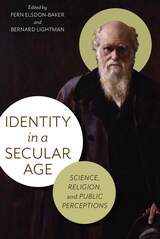

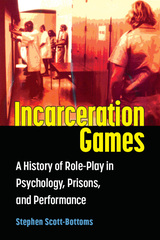
Incarceration Games reexamines the complex history and troubled legacy of improvised, interactive role-playing experiments. With particular attention to the notorious Stanford prison study, the author draws on extensive archival research and original interviews with many of those involved, to refocus attention on the in-game choices of the role-players themselves.
Role-playing as we understand it today was initially developed in the 1930s as a therapeutic practice within the New York state penal system. This book excavates that history and traces the subsequent adoption of these methods for lab experimentation, during the postwar “stage production era” in American social psychology. It then examines the subsequent mutation of the Stanford experiment, in particular, into cultural myth—exploring the ways in which these distorted understandings have impacted on everything from reality TV formats to the “enhanced interrogation” of real-world terror suspects. Incarceration Games asks readers to reconsider what they thought they knew about this tangled history, and to look at it again from the role-player’s perspective.

A leading expert on twins delves into the stories behind her research to reveal the profound joys and real-life traumas of twelve remarkable sets of twins, triplets, and quadruplets.
Indivisible by Two introduces us to an assortment of memorable characters, from the “Fireman Twins”—brothers who, though reared separately, are astonishingly similar in personality and behavioral traits—to the twin sisters who overcame one twin’s infertility by having the other serve as her surrogate mother. We meet one of the few identical brother–sister pairs in the world after one of two sisters was surgically transformed into a man, and identical triplet brothers, only one of whom is gay while the others are straight. We see uniquely blended families—identical twin brothers marrying identical twin sisters, and Chinese twins adopted by different Canadian families yet raised as sisters.
Being a twin can also render the experience of historical tragedy uniquely painful. We meet Stepha and Annetta, survivors of Josef Mengele’s heinous experiments in Auschwitz, and untangle the troubled lifelong tie between Jack and Oskar, born in the 1930s to a Jewish father and a German Gentile mother, one raised as a Jew in Trinidad and the other as a Catholic and a member of the Hitler Youth in Nazi Germany.
Nancy Segal unravels these stories and others with an eye for the challenges that life as a twin (or triplet or quadruplet) can pose to parents, friends, and spouses, as well as the twins themselves. These moving stories remind us how incompletely any theory explains real life—twin or not.
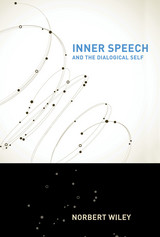
Inner speech, also known as self-talk, is distinct from ordinary language. It has several functions and structures, from everyday thinking and self-regulation to stream of consciousness and daydreaming. Inner Speech and the Dialogical Self provides a comprehensive analysis of this internal conversation that people have with themselves to think about problems, clarify goals, and guide their way through life.
Norbert Wiley shrewdly emphasizes the semiotic and dialogical features of the inner speech, rather than the biological and neurological issues. He also examines people who lack control of their inner speech—such as some autistics and many emotionally disturbed people who use trial and error rather than self-control—to show the power and effectiveness of inner speech.
Inner Speech and the Dialogical Self takes a humanistic social theorist approach to its topic. Wiley acknowledges the contributions of inner speech theorists, Lev Vygotsky and Mikhail Bakhtin, and addresses the classical pragmatism of Charles Sanders Peirce, John Dewey, William James, and George Herbert Mead to show the range and depth of this largely unexplored field.
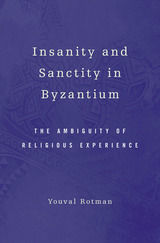
In the Roman and Byzantine Near East, the holy fool emerged in Christianity as a way of describing individuals whose apparent madness allowed them to achieve a higher level of spirituality. Insanity and Sanctity in Byzantium examines how the figure of the mad saint or mystic was used as a means of individual and collective transformation in the period between the birth of Christianity and the rise of Islam. It presents a novel interpretation in revealing the central role that psychology plays in social and historical development.
Early Christians looked to figures who embodied extremes of behavior—like the holy fool, the ascetic, the martyr—to redefine their social, cultural, and mental settings by reading new values in abnormal behavior. Comparing such forms of extreme behavior in early Christian, pagan, and Jewish societies, and drawing on theories of relational psychoanalysis, anthropology, and sociology of religion, Youval Rotman explains how the sanctification of figures of extreme behavior makes their abnormality socially and psychologically functional. The sanctification of abnormal mad behavior created a sphere of ambiguity in the ambit of religious experience for early Christians, which brought about a deep psychological shift, necessary for the transition from paganism to Christianity.
A developing society leaves porous the border between what is normal and abnormal, between sanity and insanity, in order to use this ambiguity as a means of change. Rotman emphasizes the role of religion in maintaining this ambiguity to effect a social and psychological transformation.
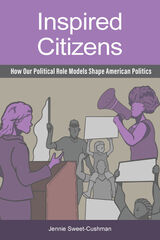
Sweet-Cushman develops Inspired Citizenship Theory to show that political role models can have motivating effects on one’s political citizenship and may, in some case, insulate those who have been traditionally marginalized in American politics. Moreover, she asserts that citizens who have political role models possess very different political behaviors and attitudes than those who do not.
Inspired Citizens also considers the often-conflicting pressures and messages political role models project to citizens. Sweet-Cushman posits that role models inspire political action most effectively when they fulfill highly individualized expectations for role model identity, spurring deeper connection and a desire to emulate.
Inspired Citizens strengthens our understanding of what we should (and should not) look to political figures for in guiding democratic behaviors and inspiring productive citizenship.
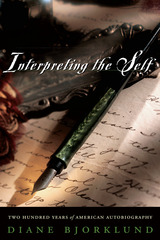
"A refreshingly welcome approach to this intriguing topic. . . . [Bjorklund's] extensive and systematic approach to her source material is impressive and enriches our understanding of this essential subject."—Virginia Quarterly Review
"Bjorklund studies both famous and obscure writers, and her clear prose style and copious quotations provide insight into the many aspects of the changing American self." —Library Journal

Interracial Housing was first published in 1951. Minnesota Archive Editions uses digital technology to make long-unavailable books once again accessible, and are published unaltered from the original University of Minnesota Press editions.
One of the most crucial strains on democracy today is the practice of racial segregation. In the press, in local, state, and federal government agencies, in fact, wherever people thrash out the problems of democratic living, the question is being discussed.
This book offers facts which throw new light on an important issue in the overall problem of racial segregation. Here are the results of a study comparing two kinds of public housing—segregated and non-segregated.
Two low-rent, public housing projects in which Negroes and whites live as next door neighbors were compared with two similar housing developments in which Negroes and whites are assigned to separate buildings or areas. The study reveals how the people living in these contrasting ways differ in their social relations, community morale, racial attitudes, and other significant social aspects. The research procedures used are explained, and general conclusions about changing prejudices are offered.
Social scientists, psychologists, housing officials, and community leaders concerned with the problems not only of housing but of race relations in general will find helpful guidance here.
In addition to providing much-needed data on an important social problem, the book offers a valuable demonstration of research techniques in social science.

In pursuit of new forms of intimacy they take up a range of concerns across a variety of contexts. To test the hypothesis that the essence of the analytic exchange is intimate talk without sex, they compare Patrice Leconte’s film about an accountant mistaken for a psychoanalyst, Intimate Strangers, with Henry James’s classic novella The Beast in the Jungle. A discussion of the radical practice of barebacking—unprotected anal sex between gay men—delineates an intimacy that rejects the personal. Even serial killer Jeffrey Dahmer and the Bush administration’s war on terror enter the scene as the conversation turns to the way aggression thrills and gratifies the ego. Finally, in a reading of Socrates’ theory of love from Plato’s Phaedrus, Bersani and Phillips call for a new form of intimacy which they term “impersonal narcissism”: a divestiture of the ego and a recognition of one’s non-psychological potential self in others. This revolutionary way of relating to the world, they contend, could lead to a new human freedom by mitigating the horrifying violence we blithely accept as part of human nature.
Charmingly persuasive and daringly provocative, Intimacies is a rare opportunity to listen in on two brilliant thinkers as they explore new ways of thinking about the human psyche.
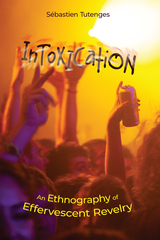
Vivid and at times deeply personal, this book offers new insights into a wide variety of intoxicating experiences, from the intimate feeling of connection among concertgoers to the adrenaline-fueled rush of a fight, to the thrill of jumping off a balcony into a swimming pool. Tutenges shows what it means and feels to move beyond the ordinary into altered states in which the transgressive, spectacular, and unexpected take place.
He argues that the primary aim of group intoxication is the religious experience that Émile Durkheim calls collective effervescence, the essence of which is a sense of connecting with other people and being part of a larger whole. This experience is empowering and emboldening and may lead to crime and deviance, but it is at the same time vital to our humanity because it strengthens social bonds and solidarity.
The book fills important gaps in Durkheim’s social theory and contributes to current debates in micro-sociology as well as cultural criminology and cultural sociology. Here, for the first time, readers will discover a detailed account of collective effervescence in contemporary society that includes: an explanation of what collective effervescence is; a description of the conditions that generate collective effervescence; a typology of the varieties of collective effervescence; a discussion of how collective effervescence manifests in the realm of nightlife, politics, sports, and religion; and an analysis of how commercial forces amplify and capitalize on the universal human need for intoxication.
This book is also freely available online as an open access digital edition.
Download the open access ebook here.
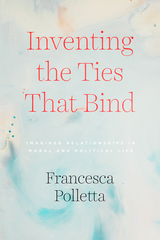
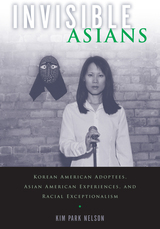
Invisible Asians offers an engaging account that makes an important contribution to our understanding of race in America, and illuminates issues of power and identity in a globalized world.
READERS
Browse our collection.
PUBLISHERS
See BiblioVault's publisher services.
STUDENT SERVICES
Files for college accessibility offices.
UChicago Accessibility Resources
home | accessibility | search | about | contact us
BiblioVault ® 2001 - 2024
The University of Chicago Press









